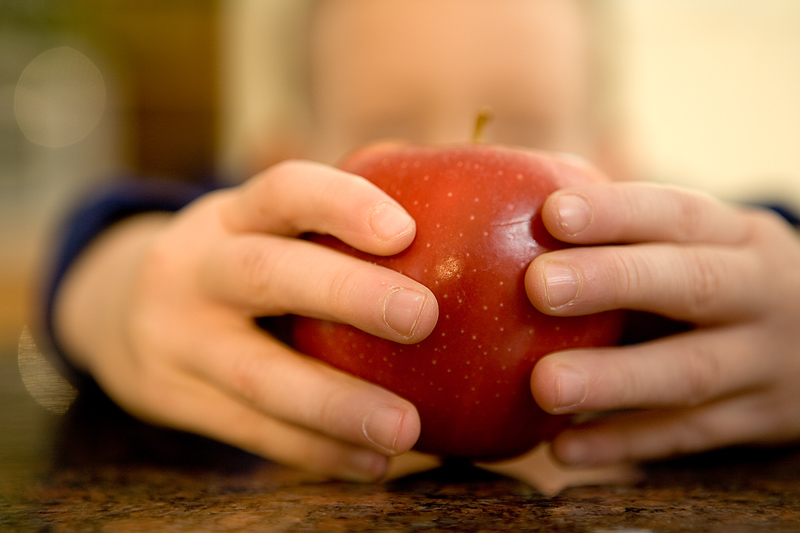

Caffeine-laden “energy shots” appear to trigger short-term insulin resistance in teenagers, Canadian researchers report.
The finding suggests that this effect might lay the foundation for developing type 2 diabetes later in life, the researchers said.
Teens who downed a tiny orange bottle of 5-hour Energy — which contains no sugar but has 208 milligrams of caffeine — were not able to metabolize sugar as efficiently as when they drank a decaf version of the same drink, the study found.
Those who drank traditional 5-hour Energy experienced a 25 percent increase in both their blood sugar and blood insulin levels compared to when they drank the decaf version, the study authors said.
“It’s the caffeine,” said senior researcher Jane Shearer, an assistant professor and diabetes researcher at the University of Calgary in Canada. “The elevated caffeine content in energy drinks is what causes this response.”
The findings were to be reported Wednesday at the World Diabetes Congress, in Vancouver, Canada. Research presented at meetings is considered preliminary until published in a peer-reviewed medical journal.
According to Dr. Jan Hux, chief science officer for the Canadian Diabetes Association, the results are troubling because the teens’ blood sugar levels did not decrease even after their bodies started producing insulin, the hormone that manages blood sugar.
“You think if the insulin is high, the sugar should go down,” Hux said. “That suggests that the caffeine is causing insulin resistance. The body has to make more insulin to achieve the same effect.”
Insulin resistance is the first step in developing type 2 diabetes, Hux explained.
For the study, 20 teenagers between the ages of 13 and 19 were randomly given either a traditional 5-hour Energy shot or a shot of 5-hour Energy Decaf. Forty minutes later, they all were given a standard oral glucose tolerance test.
The glucose tolerance test measures the body’s ability to process sugar, and is a standard screening tool for type 2 diabetes, Hux said. Participants ingest a large dose of sugar, and then researchers take regular blood samples to see how blood sugar and insulin levels respond.
All the teens eventually tried both 5-hour Energy products, so their blood sugar and insulin response could be compared head-to-head between the caffeinated and non-caffeinated versions.
When the teens drank caffeinated 5-hour Energy, they experienced a 24.6 percent greater increase in blood glucose levels and a 26.4 percent greater increase in insulin levels during the glucose tolerance test than when they drank decaf 5-hour Energy, the researchers reported.
“The caffeine has a half-life of four to six hours,” Shearer said. “This elevated glucose/insulin response is going to last a good chunk of the day.”
No one is sure why caffeine affects the body’s ability to metabolize sugar, said Danielle Battram, a professor of food and nutrition at Brescia University College in Ontario.
Caffeine might directly interfere with insulin’s ability to control sugar levels, Battram said, or it might hamper the function of insulin by promoting the release of hormones like adrenaline that work counter to insulin.
Although this study didn’t look at long-term effects, it raises concerns about the role that caffeine-laden energy drinks might play in future risk of type 2 diabetes, Shearer said.
“For individuals who are susceptible to developing type 2 diabetes down the road, this could hasten the disease along,” she said.
However, these findings shouldn’t concern people who drink coffee, Shearer said, even though a 14-ounce cup of Dunkin’ Donuts coffee contains 178 milligrams of caffeine and a 16-ounce cup of McDonald’s java has 133 milligrams.
“There is really good data to show that drinking a cup of coffee is beneficial for you,” Shearer said. “That’s because, believe it or not, coffee is the main source of antioxidants for most North Americans.”
The caffeine in coffee comes in a plant-based form, accompanied by lots of other beneficial compounds, Shearer said. On the other hand, energy drinks contain a processed form of powdered caffeine that more directly affects a person’s metabolism, she explained.
The American Beverage Association (ABA) took issue with the study findings.
“Caffeine has been safely consumed, in a variety of foods and beverages, around the world for hundreds of years,” the association said in a statement issued Wednesday.
“And most energy drinks contain significantly less caffeine than a similarly sized coffeehouse coffee. Even so, energy drink manufacturers voluntarily go far beyond all federal requirements when it comes to labeling and education,” the ABA said.
“While neither this [study] abstract, nor the body of scientific evidence, suggests that energy drinks cause unique health outcomes, it is important to note that the product used in this study was not an energy drink but rather an energy shot,” the association said in its statement. “Mainstream energy drinks are non-alcoholic beverages that are regulated by the FDA [U.S. Food and Drug Administration].”
Shearer’s research team next plans to look at the health effects of regular, full-sized energy drinks like Red Bull and Monster, which contain loads of both sugar and caffeine, she said.
Prior research has shown that people who regularly chug sugar-sweetened beverages have a 20 percent to 30 percent higher risk of type 2 diabetes, Hux said.
“From those studies we know sugary beverages are a risk, and from this study we know that caffeine may amplify that risk,” Hux said.
But the human body is capable of adapting to continued doses of caffeine, Battram said, and it’s not clear the insulin resistance shown in this study will persist long enough to cause health problems.
“We don’t know if this insulin impairment you’re seeing will continue over days,” Battram said. “We don’t really know long-term what this is doing. We can’t say this is having a negative effect on us.”
More information
Visit the U.S. National Institutes of Health for more on caffeine.
Source: HealthDay
Copyright © 2024 HealthDay. All rights reserved.

Leave a Reply